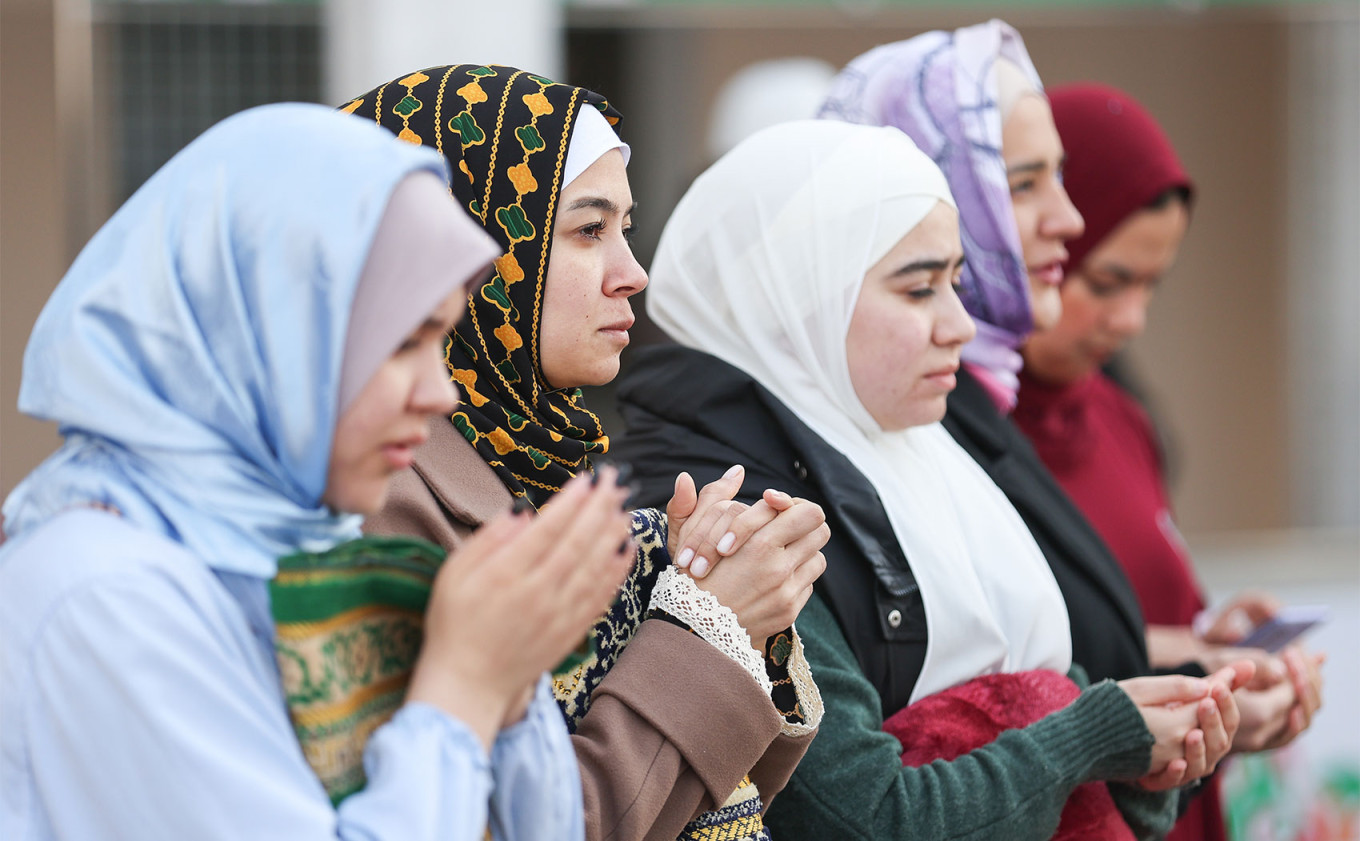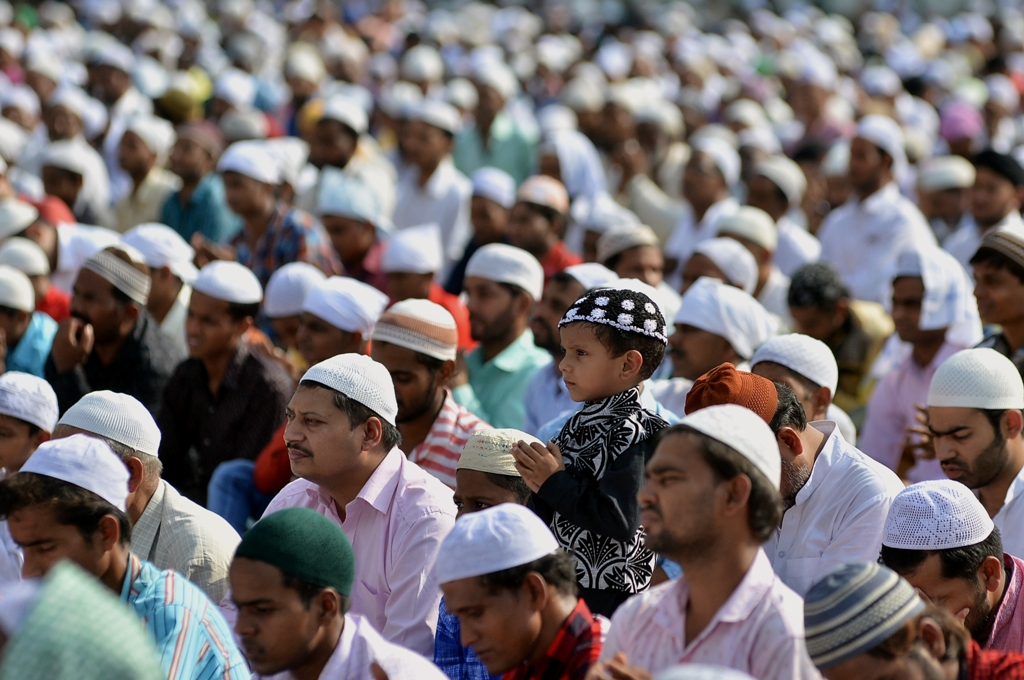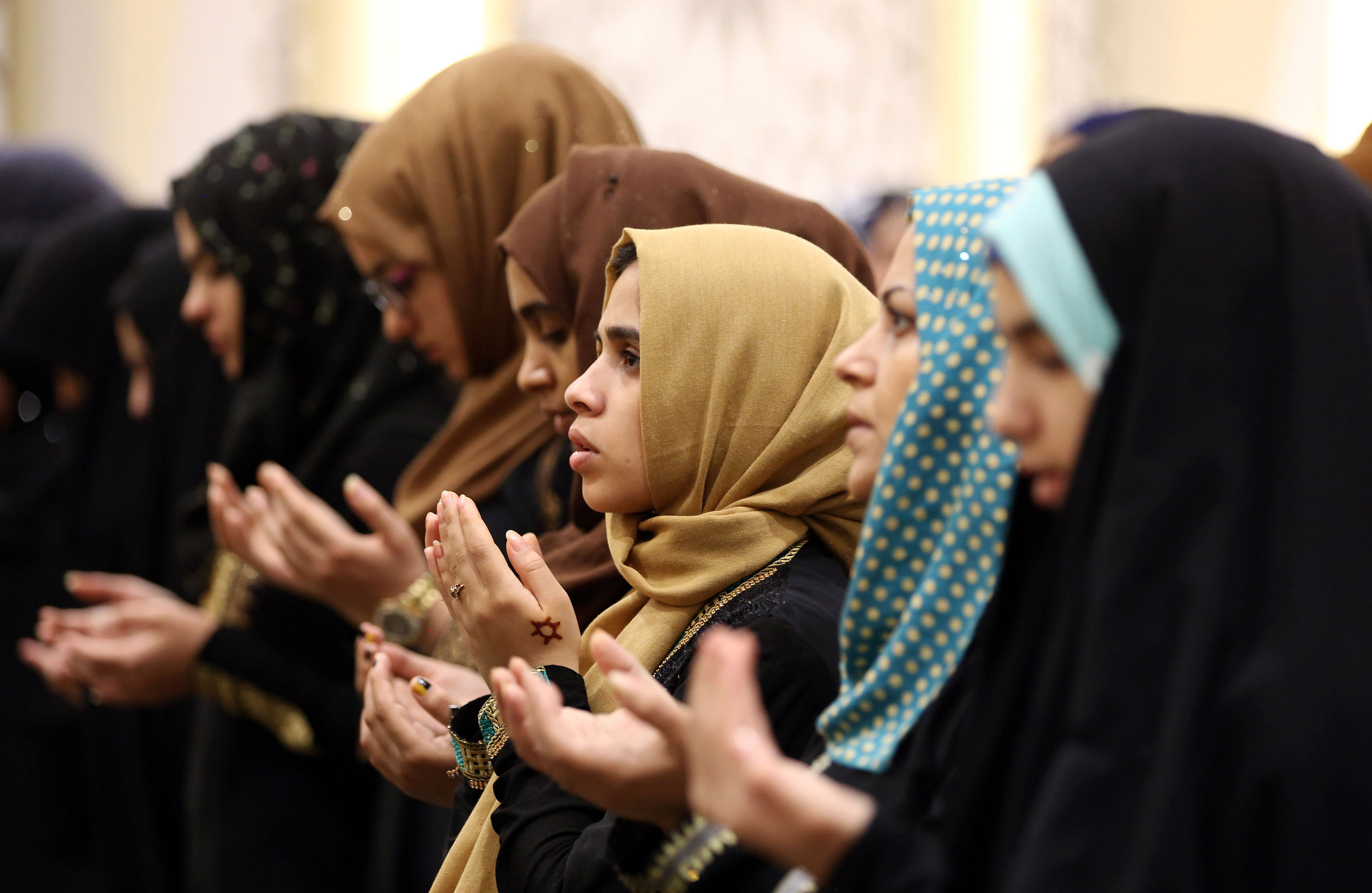Beyond The Veil: Deconstructing The 'Muslim Slut' Stereotype
The phrase "Muslim slut" is a loaded and often derogatory label that encapsulates a complex web of societal judgments, cultural expectations, and religious interpretations. It's a term frequently hurled as an insult, designed to shame and control, yet it inadvertently opens a vital conversation about agency, identity, and the diverse experiences of Muslim women worldwide. This article delves into the intricate layers behind this provocative label, exploring its origins, its impact, and the broader context of sexuality, modesty, and empowerment within Muslim communities.
Far from a simple descriptor, the term "Muslim slut" reflects deep-seated biases and a lack of understanding regarding the multifaceted lives of Muslim women. It often stems from a narrow, monolithic view of Islam and its adherents, failing to acknowledge the vast diversity in cultural practices, personal beliefs, and individual choices that exist across the globe. By examining the societal pressures, the digital landscape, and even the socio-economic realities that intersect with these discussions, we aim to provide a nuanced perspective that challenges stereotypes and fosters a more informed dialogue.
Table of Contents
- The Weight of a Label: Understanding "Muslim Slut"
- Islam's Core Principles: A Foundation of Modesty and Morality
- Navigating Sensuality and Identity within Cultural Constraints
- The Digital Frontier: Muslim Women and Online Content
- Socio-Economic Realities: Sex Work in Muslim-Majority Contexts
- Deconstructing Stereotypes and Fostering Nuance
- Empowerment and Resistance: Challenging the Narrative
- Conclusion
The Weight of a Label: Understanding "Muslim Slut"
The phrase "Muslim slut" is not merely an insult; it's a tool of social control, often wielded to enforce perceived norms of modesty and behavior within or outside Muslim communities. Its very existence highlights a profound double standard, particularly for women, where their attire, choices, or even expressions of individuality are scrutinized through a lens of morality and "honor." Consider the poignant example provided in the data: "I have been called a 'fat Muslim slut' by an Australian woman because well, I may be a little chubby, but because I choose to wear lipstick." This statement vividly illustrates how a woman's personal choices – something as innocuous as wearing lipstick – can be weaponized against her, leading to a derogatory label that strips away her dignity and autonomy. The origin of such a label is rooted in societal expectations that often dictate how Muslim women should present themselves, particularly in Western contexts where stereotypes about Muslim women being oppressed or hyper-sexualized coexist. When a Muslim woman deviates from these rigid expectations, whether by embracing a modern aesthetic, expressing her sensuality, or simply living authentically, she can become the target of such shaming. The term "Muslim slut" then becomes a punitive measure, designed to rein in perceived transgressions and reinforce a narrow definition of what it means to be a "respectable" Muslim woman. It underscores the immense pressure faced by many to conform, both to internal community standards and external societal biases.Islam's Core Principles: A Foundation of Modesty and Morality
To understand the context in which the label "Muslim slut" is often applied, it's crucial to briefly touch upon the foundational principles of Islam regarding modesty, morality, and individual conduct. Islam, as a comprehensive way of life, provides guidance on various aspects of human existence, including personal behavior and social interactions. A Muslim is defined as a person who believes in and consciously follows Islam, affirming the oneness of Allah and the prophethood of Muhammad (peace be upon him) as the final messenger. The faith is structured around core beliefs and practices, often summarized by the Five Pillars of Islam: the declaration of faith (Shahada), prayer (Salat), charity (Zakat), fasting during Ramadan (Sawm), and pilgrimage to Mecca (Hajj). These pillars are fundamental to Muslim life, guiding individuals towards a "good and responsible life." Beyond these pillars, Islamic teachings emphasize concepts like modesty (haya), integrity, and accountability for one's actions, particularly in anticipation of the Day of Judgment. Muslims believe that this life is not the final chapter, and individuals will be held accountable for their deeds. While interpretations of modesty vary widely across cultures and individuals, the underlying principle is generally understood to promote respectful conduct and attire that safeguards dignity. The stark contrast between these foundational principles and the derogatory nature of the label "Muslim slut" highlights the tension between religious ideals, cultural norms, and individual lived experiences.Navigating Sensuality and Identity within Cultural Constraints
For many Muslim women, the journey of self-discovery, particularly concerning their sensuality and identity, is deeply intertwined with the constraints and expectations of culture and religion. This intricate dance between personal desires and societal norms forms a significant part of their lived reality. The provided data highlights this complexity through the discussion between Mariam and Amna, a Pakistani Muslim woman, who "discuss the complexities of reclaiming sour sensuality within the constraints of culture, religion, and..." This conversation points to a universal human experience – the desire to explore and embrace one's own body and desires – but within a specific cultural and religious framework that often prioritizes modesty and traditional roles. The concept of "reclaiming sour sensuality" suggests a deliberate effort to redefine and embrace one's own understanding of sensuality, even if it has been historically suppressed or viewed negatively by cultural or religious interpretations. It implies a journey of self-acceptance and empowerment, where individuals seek to reconcile their inner world with external expectations. This often involves challenging inherited notions of what is "acceptable" or "unacceptable" for a Muslim woman, pushing against the very stereotypes that might lead to labels like "Muslim slut." The spectrum of modesty within Muslim communities is vast; some women choose to wear the headscarf (hijab) as an expression of their faith and identity, while others may choose not to, each navigating their own path. The key lies in understanding that these are deeply personal choices, often made in dialogue with their faith and cultural heritage, rather than being dictated by a singular, rigid interpretation. The struggle to assert individual agency in the face of communal and religious expectations is a continuous and evolving process.The Digital Frontier: Muslim Women and Online Content
The digital age has opened up unprecedented avenues for expression, connection, and, controversially, the commodification of sexuality. For Muslim women, this landscape presents a complex paradox: a space for newfound agency and financial independence, yet also one where existing stereotypes can be reinforced or new forms of exploitation can emerge. The data points to this phenomenon with mentions of "top Arab OnlyFans accounts of 2025" offering "a variety of content, from erotic to curvy and spicy," and the emergence of "hijab pornography (i.e., pornographic material that portrays at least one of the female performers as...)." This indicates a growing, albeit niche, market for content featuring Muslim women, which challenges traditional notions of modesty and privacy.The Rise of Niche Content
The existence of platforms like OnlyFans has allowed individuals to monetize their content directly, bypassing traditional gatekeepers. For some Muslim women, this might represent a form of economic empowerment, offering a degree of financial independence that might be difficult to achieve through conventional means, especially in societies with limited opportunities. The allure of "teen Muslim girls ready to explore their bodies in front of you to milf sluts wearing nothing but their head scarf" suggests a demand for content that juxtaposes traditional Islamic symbols with explicit sexuality. Similarly, "Muslim 18+ record" implies a community or category for adult content specifically featuring Muslim individuals. While these platforms can offer agency to creators who choose to participate, they also raise questions about exploitation, privacy, and the perpetuation of fetishistic stereotypes, particularly when the content is consumed by those outside the community who may hold preconceived notions about Muslim women.Challenging Perceptions in the Digital Sphere
The digital sphere is a double-edged sword. On one hand, it can be a space where Muslim women actively challenge monolithic perceptions, showcasing their diversity, strength, and individuality. Social media, for instance, allows them to control their narratives, express their identities, and build communities that defy stereotypes. On the other hand, the very existence of content like "hijab pornography" or "Muslim 18+" can be seen as either a radical act of reclaiming one's body and sensuality, or as a problematic commodification that plays into orientalist fantasies and contributes to the very objectification that the term "Muslim slut" embodies. The motivations behind creating or consuming such content are complex, ranging from personal liberation and financial necessity to external pressures and the exoticization of Muslim women. It underscores the ongoing tension between individual autonomy and the broader societal and religious frameworks that shape perceptions of Muslim women's sexuality.Socio-Economic Realities: Sex Work in Muslim-Majority Contexts
Beyond the digital realm, the realities of sex work intersect with Muslim communities in tangible ways, often driven by dire socio-economic circumstances. The data explicitly states that "Bangladesh is one of the few Muslim countries where prostitution is legal," and highlights "the district of Tangail is home to Kandapara brothel, the oldest and second largest brothel in the country." This factual information brings to light a critical, often overlooked, aspect of this discussion: the existence of sex work within Muslim-majority nations, driven by factors far more complex than personal choice alone.Legality and Livelihoods
The legal status of prostitution in Bangladesh, for example, creates a unique environment where sex work, though often stigmatized, operates openly in designated areas like Kandapara. This provides a livelihood, albeit often a precarious one, for thousands of women. The global discourse around sex workers' rights, where "across the globe, as sex workers fight for their right to get vaccinated, there are some places that acknowledge them as essential workers," underscores the recognition of sex work as a form of labor. However, for "many Muslim sex workers," this reality is fraught with immense challenges. They navigate the severe social stigma associated with their profession, often facing ostracization from their families and communities, while simultaneously grappling with the religious prohibitions against such work. The tension between economic survival and religious adherence creates an incredibly difficult situation, highlighting the systemic issues that push individuals into such industries.Factors Contributing to Sex Work
The presence of sex work in places like Kandapara brothel is rarely a matter of free choice driven by a desire to be a "Muslim slut." Instead, it is typically a consequence of extreme poverty, lack of educational opportunities, forced marriages, domestic violence, human trafficking, or other forms of exploitation. These systemic vulnerabilities leave individuals with few alternatives for survival. The women in these brothels, many of whom may identify as Muslim, are often trapped in a cycle of poverty and debt, making escape incredibly difficult. Their lives are a stark reminder that discussions around sexuality and morality must always be contextualized within broader socio-economic realities and the fundamental human need for survival and dignity. Understanding these underlying factors is crucial to moving beyond judgmental labels and towards addressing the root causes of vulnerability.Deconstructing Stereotypes and Fostering Nuance
The pervasive nature of the label "Muslim slut" underscores a broader problem: the tendency to apply monolithic, reductive stereotypes to entire groups of people. Muslim women, in particular, are often subjected to a narrow set of expectations and misrepresentations, either as oppressed victims or, conversely, as overtly sexualized figures who defy religious norms. This binary thinking fails to capture the immense diversity within Muslim communities globally. There are millions of Muslim women who navigate their faith, culture, and personal lives in myriad ways, each with unique experiences, aspirations, and interpretations of what it means to be a Muslim woman. Some embrace traditional forms of modesty, while others adopt more contemporary expressions of their identity. Some are deeply devout, while others may be secular or questioning. To reduce this rich tapestry of experiences to a single, derogatory label like "Muslim slut" is not only inaccurate but also deeply harmful. It strips individuals of their agency, denies their complexities, and perpetuates a narrative that is often imposed from external perspectives. Fostering nuance requires acknowledging that a woman's choice to wear lipstick, explore her sensuality, or even engage in sex work (often out of desperation) does not inherently define her entire identity or her relationship with her faith. It demands a shift from judgment to understanding, recognizing the individual journeys and challenges faced by Muslim women in a rapidly changing world.Empowerment and Resistance: Challenging the Narrative
Despite the societal pressures and the burden of labels like "Muslim slut," Muslim women globally are actively engaged in powerful acts of empowerment and resistance. They are challenging entrenched narratives, redefining what it means to be a Muslim woman in the 21st century, and reclaiming their agency over their bodies, identities, and voices. This resistance manifests in various forms, from academic discourse to artistic expression, and from grassroots activism to personal choices that defy societal expectations. Many Muslim women are advocating for their rights within their communities and on a global stage, pushing for gender equality, bodily autonomy, and freedom of expression. They are using platforms, both online and offline, to share their stories, challenge misrepresentations, and build solidarity. This includes advocating for body positivity, as seen in the example of the woman being called a "fat Muslim slut" for wearing lipstick – her very act of defiance against the insult is a form of resistance. Others are engaging in critical re-interpretations of religious texts, seeking to find empowering frameworks that align with modern values of equality and justice. The discussion around "reclaiming sour sensuality" is a testament to this internal and external struggle for self-definition. By engaging in open dialogue, fostering education, and supporting initiatives that promote the diverse voices of Muslim women, society can move beyond simplistic labels and towards a more respectful and accurate understanding of their multifaceted lives. The ultimate goal is to dismantle the harmful stereotypes and allow Muslim women the space and freedom to define themselves, on their own terms, free from the weight of derogatory labels.Conclusion
The term "Muslim slut" is a stark reminder of the complex interplay between religion, culture, gender, and power. It's a label that seeks to control and shame, yet paradoxically, it illuminates the urgent need for a more nuanced and empathetic understanding of Muslim women's lives. We've explored how this derogatory phrase is used, often to police appearance and behavior, and how it stands in stark contrast to the core Islamic principles of modesty and responsible living. However, the discussion extends beyond mere condemnation of the term. It delves into the realities of Muslim women navigating their sensuality and identity amidst cultural and religious constraints, often seeking to "reclaim" aspects of themselves. The digital age further complicates this, presenting both opportunities for expression through platforms like OnlyFans and challenges through niche content like "hijab pornography." Moreover, the socio-economic realities of sex work in Muslim-majority countries like Bangladesh highlight the systemic vulnerabilities that often drive individuals into such professions, underscoring that survival, not defiance, is often the primary motivator. Ultimately, deconstructing the "Muslim slut" stereotype requires moving beyond simplistic binaries and embracing the rich diversity of Muslim women's experiences. It calls for acknowledging their agency, their struggles, and their triumphs in challenging narratives and defining their own paths. By fostering critical thinking, promoting respectful dialogue, and amplifying the authentic voices of Muslim women, we can contribute to a world where individuals are judged not by reductive labels, but by the fullness of their humanity. What are your thoughts on the complexities faced by Muslim women regarding identity and societal expectations? Share your perspective in the comments below, or explore other articles on our site that delve into similar topics of culture, identity, and empowerment.- Iron Lung Movie Release Date
- Lita Wwe
- Laura Barron Lopez
- Phaith Montoya
- Star Wars Micro Galaxy Squadron

In Photos: Russia's Muslims Celebrate the End of Ramadan - The Moscow Times

State of leadership among the Muslim community in India – TwoCircles.net

How is Eid al-Adha celebrated around the world? | | Al Jazeera